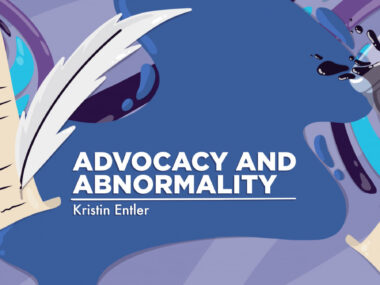Large new study reveals factors that affect gut microbes in CF infants
Greater use of antibiotics seen to lead to less microbiome diversity
Written by |

The community of microbes in the gut, called the gut microbiome, was affected by age, antibiotic use, and geography among infants with cystic fibrosis (CF) in the U.S. and Australia, according to a new study in the two nations.
Babies with CF in Australia, where preventive antibiotic usage is prevalent, were found to have a lower diversity of microbes in the gut compared with their U.S. counterparts and infants without CF.
While microbiome diversity was not, overall, associated with growth in these young CF patients, malnutrition and antibiotic usage were tied to microbial changes. Such changes in microbes in the gut are expected to influence the metabolism of short chain fatty acids — a family of molecules important for human health and immune function — the researchers noted.
“The infant gut microbiome should be an important consideration for future management of CF,” the team wrote, noting that “clinical practices appear to contribute significantly to the differences noted” among babies treated for the genetic disease.
The study, “The association between gut microbiome and growth in infants with cystic fibrosis,” was published in the Journal of Cystic Fibrosis.
Investigating the factors impacting gut microbes in babies with CF
The gut microbiome — the constellation of bacteria, fungi, and viruses that colonize the gastrointestinal tract — is now recognized to play a key role in human health. Indeed, an imbalance in this microbial community, called dysbiosis, is observed in a number of chronic diseases.
In CF, changes in the mucus of the gut leads to an intestinal environment in which the abundance of less common bacteria is high and inflammation is prevalent.
These gut-related changes have been linked to bacterial infections in the airways of children with CF. Early gut dysbiosis in CF infants also might influence nutritional status and growth trajectories that are strongly associated with lung function and survival later on.
In this new study, scientists explored the relationship between the gut microbiome, growth, and nutrition among 78 infants with CF seen at any of four centers in the U.S. and Australia. Another 20 children in the U.S. without CF also were included, and served as a control group.
The infants were followed for one year to monitor their growth and nutrition. Stool samples for microbiome analyses also were provided by a subset of these children.
While babies from the U.S. and Australia were similar in size at birth, the Australian infants gained more weight over time, data showed. In a notable difference, nearly all of the Australian infants (98%) were given daily preventive antibiotics, while none of the babies in the U.S. received them.
Every infant in the U.S. received infant formula with or without breastmilk, whereas 68% of Australian babies were given formula.
These differences corresponded with effects on the gut microbiome, the researchers found. While overall microbial diversity in the gut was similar between healthy infants and infants with CF in the U.S., Australian babies with CF had a significantly lower microbial diversity that persisted over time.
Infants in Australia gained more weight but had less microbiome diversity
Among the microbial differences between all CF infants and non-CF infants was a predominance of bacteria belonging to the Proteobacteria phylum, which is a type of biological classification or group, among those with cystic fibrosis. There also was a depletion of the Bacteroidetes phylum in these infants.
Still, Proteobacteria were significantly more prevalent in CF babies from Australia than among those from the U.S. This largely was driven by an abundance of Klebsiella bacteria, the researchers noted.
While Proteobacteria previously have been linked to poor growth in infants with CF, babies in Australia had better growth over time than did their U.S. counterparts. However, no overall relationship between gut microbe diversity and growth were observed in this study.
Growth differences between U.S. and Australian babies could instead be related to the preventive antibiotic use that was prevalent in Australia, according to the authors.
Such antibiotic treatment was associated with various changes in the gut microbiome, including an increase in Klebsiella bacteria and a decrease in Staphylococcus and others.
Malnutrition, which was observed in six U.S. babies and two Australian infants, also was associated with depletions in certain bacteria — several of which overlapped with the ones depleted with preventive antibiotic use.
Age and breastfeeding also were found to influence microbiome composition.
With a greater understanding of [the] relationships [affecting gut microbes] and the directionality, the gut microbiome could be a target for future therapeutic interventions.
Microbiome changes and associated clinical factors were expected to lead to functional changes in metabolic pathways.
Both malnutrition and preventive antibiotic use were predicted to influence pathways related to the metabolism of short chain fatty acids, a family of molecules that play diverse roles in maintaining human health, including immune cell function.
“In the future, more direct studies of bacterial metabolism may be helpful,” the researchers wrote.
More work will still be needed to understand how the gut microbiome influences other organ systems, such as the respiratory tract, to influence CF outcomes, according to the scientists.
“With a greater understanding of these relationships and the directionality, the gut microbiome could be a target for future therapeutic interventions,” the researchers wrote.








